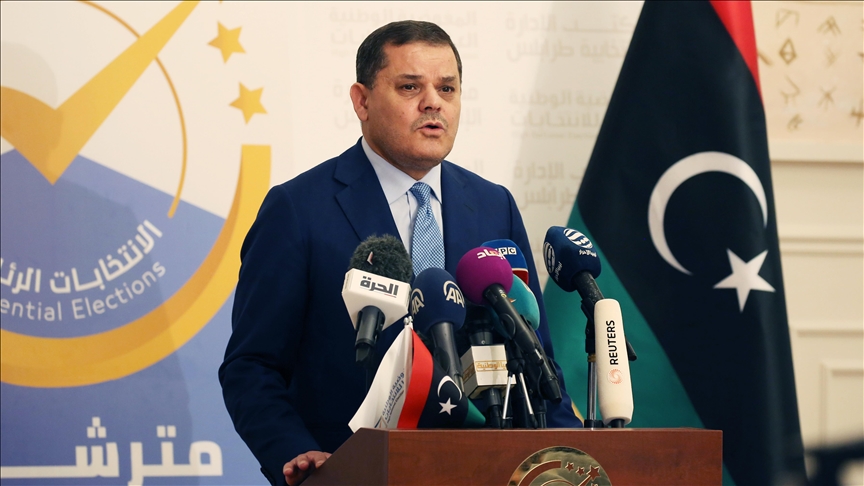The Libyan National Unity Government announced, on Thursday, that a helicopter carrying a number of its ministers had to land moments after take-off due to a "technical defect", while gunmen opened fire during a visit to the head of the unity government, Abdel Hamid al-Dabaiba, to the city of Tajoura, east of Tripoli.
And government spokesman Muhammad Hammouda said that a "technical defect" caused a helicopter carrying a number of ministers to land after the completion of the cabinet meeting in the city of Jado (180 km southwest of Tripoli).
Hammouda added, in a press statement, "There is no human damage, but the plane sustained structural damage," without naming the ministers with whom the plane landed.
Earlier on Thursday, the government held its eighth regular meeting for the current year 2022, in the presence of Dabaiba.
The city of Jadu is adjacent to the city of Zintan, whose forces are led by the commander of the Western Military Region, Major General Osama al-Juwaili, who is loyal to the Prime Minister-designate from Parliament, Fathi Bashagha.
The meeting of the Dabaiba government in Jadu carries a message that the government continues to operate and is able to operate from any city, according to observers.
Shooting
In a related context, activists on the communication platforms broadcast video clips that showed the mobilization of a group of armed men and their shooting during the visit of the Prime Minister of the Government of National Unity, Abdel Hamid Dabaiba, to the city of Tajoura, east of the capital, Tripoli.
Media outlets opposed to Dabaiba said that his convoy came under fire, forcing him to return to Tripoli. On the other hand, the Media and Government Communications Department that tracks Dabaiba confirmed his arrival in Tajoura and his meeting with a number of protesters in the area.
watched
The Prime Minister of the National Unity Government, Abdel Hamid Al-Dabaiba, during a tour of the Al-Bifi intersection in Tajoura, stands on the protesters' demands.# Libya pic.twitter.com/zpzeK6Xqz6
- February Channel (@FebruaryChannel) June 23, 2022
Due to differences between the Libyan official institutions, especially over the electoral law, it was not possible to hold parliamentary and presidential elections in 2021, as part of a United Nations-sponsored plan to end the conflict in the oil-rich country.
Earlier, Dabaiba stressed the need to hold general elections in implementation of the objectives of the political agreement, and that any delay requires maintaining the state of stability produced by the agreement.
Dabaiba said at the eighth cabinet meeting in the city of Jado, northwest of Libya, that international parties and the United Nations refuse to use a specific date as a tool for manipulation and political pressure.
Tripoli clashes
In the capital, Tripoli, 4 people, including a civilian, were killed, and 3 others were injured in a clash with light weapons in the densely populated Dahmani area, late on Wednesday evening.
Clashes erupted between two armed groups, one affiliated with the government, the Special Deterrence Force, and the other from the Stabilization Support Organization of the Presidential Council.
Libya suffers from economic and security crises, as the political crisis escalated by granting the House of Representatives confidence in the government of Fathi Bashagha in early March.
The Prime Minister of the National Unity Government, Abdel Hamid Dabaiba, refuses to hand over power except to a government that comes through a new parliament elected by the people.
To solve this crisis, the United Nations launched an initiative to form a joint committee of the House of Representatives and the Supreme Council of the State (Representative Consultative) that concluded its work in the Egyptian capital, Cairo, without accomplishing what it was entrusted with, which is to establish a constitutional basis according to which elections will be held.

